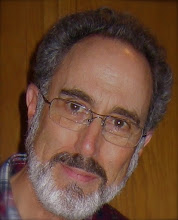“They're not creatures you can fight--they're an elemental--an 'act of God!' Ten miles long, two miles wide--ants, nothing but ants! And every single one of them a fiend from hell; before you can spit three times they'll eat a full-grown buffalo to the bones. I tell you if you don't clear out at once there'll he nothing left of you but a skeleton picked as clean as your own plantation."

Just as the voracious Army Ants in Carl Stephenson’s short story, Leiningen Versus the Ants, devour all before them, we seem a people insatiable, searching every last shore, aquifer, forest, plain, and plateau desperate for that last barrel of oil, that last board foot of lumber, that last drop of water. We stumble on imprisoned between ignorance and greed, to be delivered into the annihilation that is our god.

The earth has existed for some four and half billion years, created in some cosmic catastrophe of colliding matter and formed from toxic fumes and molten rock, its history replete with cataclysmic events of unimaginable magnitude and violence. It was 800 million to a billion years after the earth’s fiery birth before the first vestiges of primitive life were created in the form of cyanobacteria that ultimately reacted with other elements to transform the earth into an habitable planet. And along came man. But not for billions of years.
Homo sapiens, or “modern man” emerged only about 120,000 years ago. That makes man’s time upon the earth clock about 2 seconds out of 24 -- a blip of miniscule proportion. But, like a bacteria, we have morphed and multiplied many times over.
At the dawn of the first millennium A.D., the world’s population was around 300 million people. Growth into the second millennium was modest, but by the time of the American Revolutionary War, the population of humans on earth had grown to over a billion, despite the ravages of the Black Plague in the thirteen hundreds. Human population is today, some 230 years later, over 6.7 billion and growing exponentially. By 2050, 42 years from now, the number of people on earth will increase by over 40%, to 9.5 billion.
It is unreasonable to expect that a presence of such magnitude and rapacious appetite would not change the earth upon which it dwells. According to some geologists, humans have so drastically altered the earth that the Holocene epoch, which started 10,000 years ago, has ended and we have entered a new epoch - the Anthropocene.

Early humans, hunter-gathers -- had little impact on the planet. But with the advent of technology, the human footprint grew disproportionately. Man is dominant on the earth, and like the cyanobacteria of eons ago, is reshaping the earth dramatically, but not in ways that make it more habitable. We are making the world hotter, drier, dirtier, and biologically less diverse. We have destroyed over half of the world's wetlands and original forests, polluted rivers and the ocean, and poisoned the land. We cause the extinction of an average of 100 species per day. Sociobiologist E. O. Wilson predicts that if we don’t slow our consumption of natural resources, we’ll extinguish half the species of plants and animals by the end of the 21st century.
According to Lord Robert May, Professor of Zoology at Oxford University, and winner of the Royal Society’s Copley medal, the world’s oldest prize for scientific achievement, "We stand on the brink of a global extinction event -- the sixth episode in the history of the Earth." The most recent extinction event, approximately 65 million years ago, closed the Cretaceous period and ended the reign of dinosaurs. "The difference is that the current global extinction event is being caused by the actions of a single dominant species rather than a 'natural' event," said Lord May. We are part of the Earth's great fauna, but we are also its greatest menace.
The human species has become a plague on the face of the earth.

And the Lord said, I will destroy man whom I have created from the face of the earth...for it repenteth me that I have made him.












